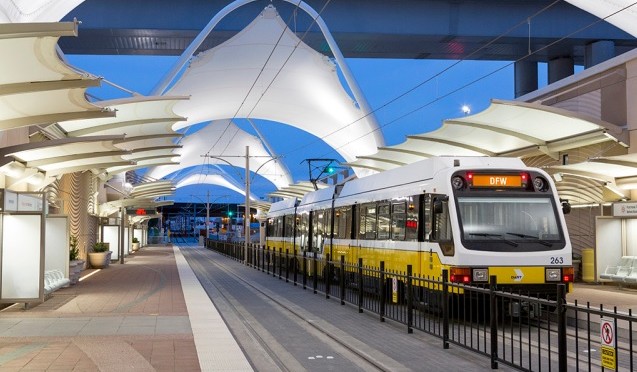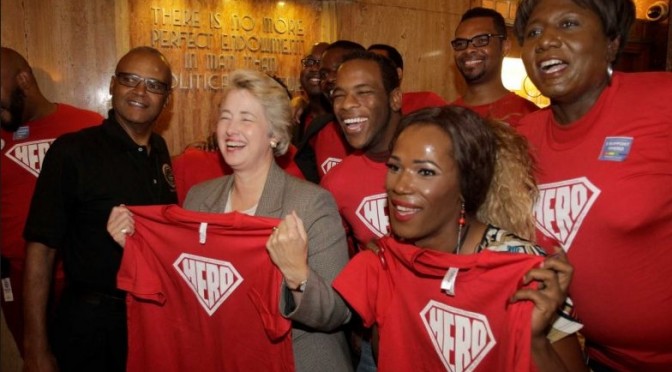Dallas Area Rapid Transit (DART) and … Continue Reading ››
Dallas: DART Orange Line Rolls Into DFW Airport
August 18th is a truly historic day for Texas public transit advocates, as Dallas Area Rapid Transit (DART) begins light rail service to Dallas-Ft. Worth International Airport. After dreaming of such a connection for decades, Dallas has made it happen. Here's more from the official DART press release...

